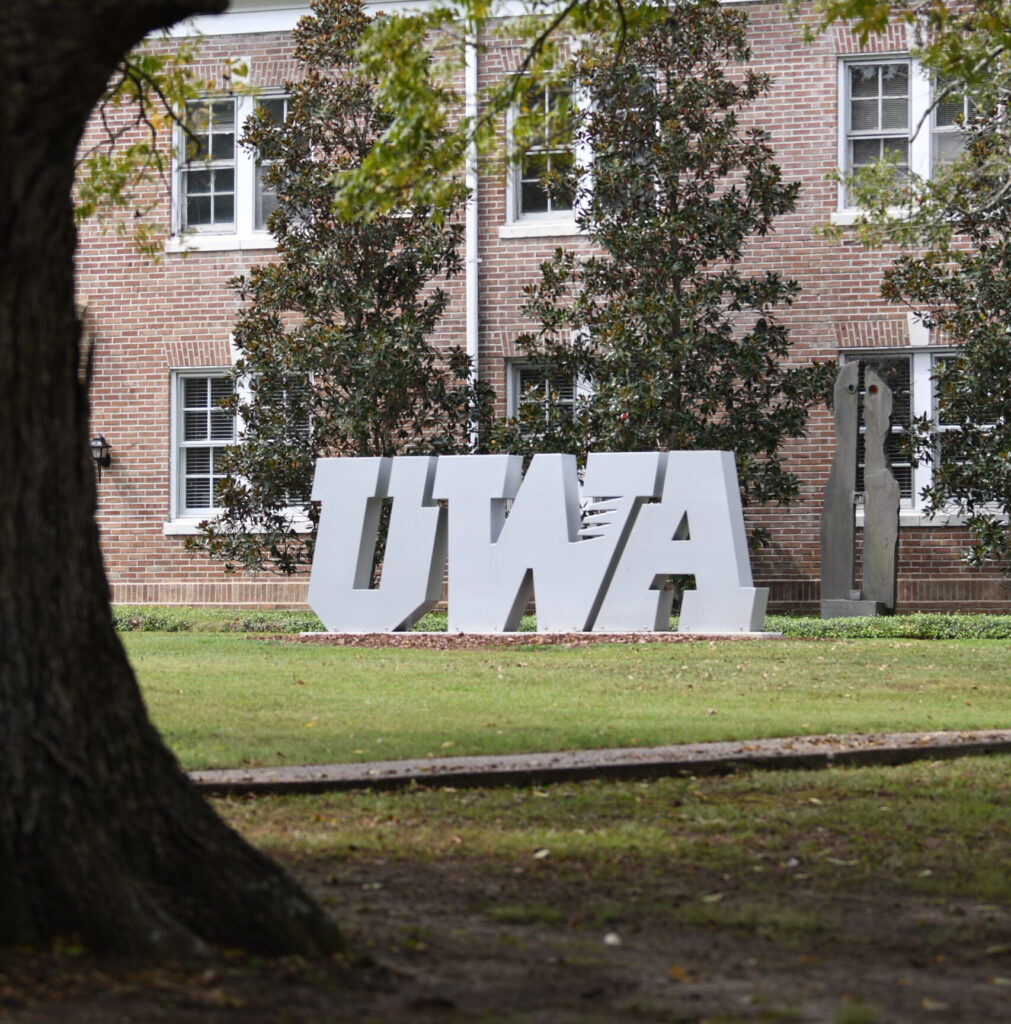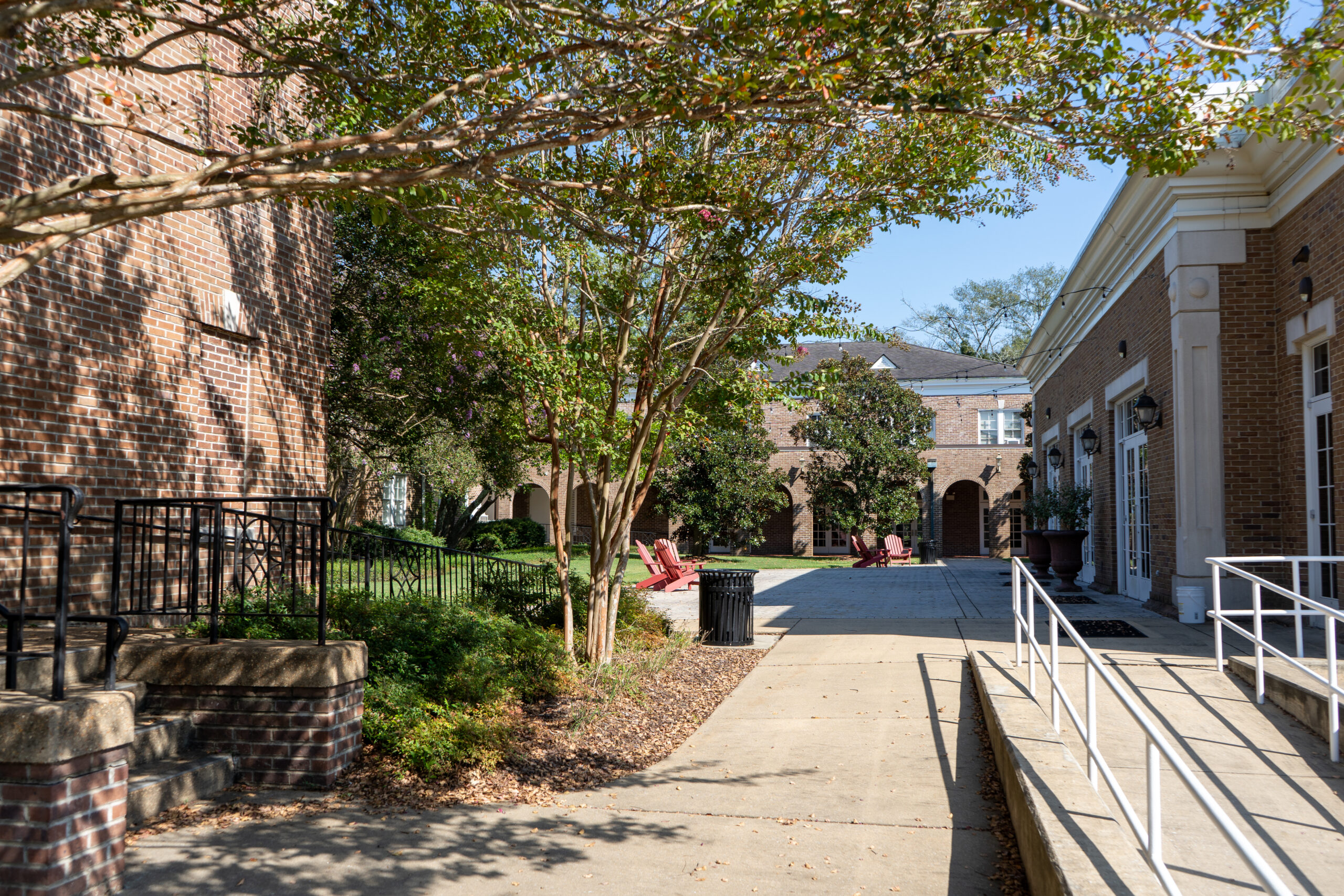Behavioral Health Resources and Support
On-Campus Support
Available Services
Behavioral Health Services at UWA provides the following to those in need:
- Referrals to mental health providers, counselors, and/or therapists.
- Training and workshops centered around mental health, setting boundaries, managing social anxiety, dealing with intense emotions, and various forms of abuse.
Location: Brock Hall, Room 123
Contact: (205) 652 -3651, bthetford@uwa.edu
For Those in Crisis
If you or someone you know is experiencing a crisis and you need immediate assistance, please do not rely on email as it may not provide the timely help that is needed. Instead, consider the following options:
- Call emergency services. You can dial 911 or the local emergency services number at (334) 289-4000 (Bryan W. Whitfield Hospital) to get immediate assistance for medical, psychological, or other urgent issues.
- Call a crisis hotline. These hotlines are staffed by trained professionals who can provide assistance and guidance during difficult times. They often specialize in areas such as mental health, suicide prevention, domestic violence, and more. You can call The National Suicide & Crisis Hotline at 988 or The Crisis Center of Central Alabama at (205) 323-7777.
- Reach out to a trusted person. If you have a friend, family member, or colleague you trust, consider reaching out to them for support. Sometimes talking to someone you know can be very helpful during a crisis.
- Contact a mental health professional. If your crisis is related to mental health issues, consider contacting a mental health professional or therapist who can provide guidance and support.
- Go to the nearest hospital. If it’s a medical or mental health emergency, go to the nearest hospital emergency room.
Student of Concern
Faculty and staff, as trusted figures, are frequently the first to identify signs of distress in students, which can significantly impact their academics and well-being. While there’s no one-size-fits-all approach to detecting distress, specific guidelines can help in recognizing and assisting individuals who may be in need.
If you have concern for a student’s well-being, including death of a family member or friend, injury/illness, mental health issues, misuse of alcohol and/or drugs, self-harm, unusual behavior, and/or financial concerns, please submit a request for resource referral to alert University support staff of the situation.
If the situation is an emergency or if someone is in danger, please call 911. If a situation warrants immediate attention, but is not a life-threatening emergency, please call the UWA Police Department at (205) 652-5555.
More Resources and Support
Crisis Response/Suicide
- Trevor Lifeline LGBTQ Youth
(866) 488-7386
thetrevorproject.org - National Suicide Prevention Lifeline
(800) 273-8255
suicidepreventionlifeline.org
Domestic Abuse/Interpersonal Violence
- Alabama Coalition Against Domestic Violence
(334) 832-4842
www.acadv.org - Childhelp National Child Abuse Hotline
1(800) 422-4453
www.childhelphotline.org
Sexual Assault
- Tuscaloosa SAFE Center
(205) 860-7233
tuscaloosasafecenter.com
Grief
Website with grief resources and support
Teletherapy (Web-Based Therapy)
Teletherapy websites
Christian-based teletherapy website
Teletherapy website for LGBTQ community
Addictions Help
- Narcan saves lives by rapidly reversing the life-threatening effects of an opioid overdose, restoring normal respiratory function (breathing). Learn more and find a Narcan Locator.
- Alabama National Rehab Hotline
(866) 210-1303
nationalrehabhotline.org - Aletheia House
(205) 324-6502
specialkindofcaring.org - Indian Rivers Behavioral Health
(205) 391-3131
irbh.org - Alabama Department of Mental Health
(844) 307-1760
mh.alabama.gov
Community Resources
Choctaw County [Alabama] Resource Guide
Marengo County [Alabama] Resource Guide
Meridian, Mississippi Resource Guide
Pickens County [Alabama] Resource Guide
Sumter County [Alabama] Resource Guide
Tuscaloosa County [Alabama] Resource Guide
Alcohol & Drug Rehab Centers in Alabama
Additional Resources
The transition from a high school student to a college student is one of the biggest you’ll make in your life. For many, it is the first time away from home. In this new environment, you will find yourself with greater responsibility, which can result in more stress than you’ve ever experienced. And, once you’re here, you may still have issues requiring help.
No matter what, we want your time here to be the safest and most enjoyable it can be. To help you adjust, we offer the following resources that can give you the strategies and support you need to meet your challenges.
Disclaimer: While efforts have been made to refer to only quality websites containing accurate information, inclusion does not imply that the University of West Alabama or Counseling Services at UWA endorses all the content included in these sites.



The purpose of the Alcohol and Drug Education Program (ADEP) is to provide the University community of faculty, staff, and students access to information to promote healthy changes in drinking and drug use behavior.

Being in a new environment can cause stress and even anger. But there are constructive ways to control your temper and resolve conflict.

Adjusting to a college campus comes with enough issues without having to deal with clinical mental disorders. If you suffer from one of the following psychological disorders, contact Counseling Services to arrange for free counseling sessions to help ease the burden you may be experiencing.



The Jed Foundation’s Mental Health Resource Center provides essential information about common emotional health issues and shows teens and young adults how they can support one another, overcome challenges and make a successful transition to adulthood.

The major difference between students who reach their potential by graduation — and those who don’t — is motivation. If you think you have a motivation problem, there are things you can do to improve your situation.

We all experience stress and anxiety in response to life events. When we successfully apply coping skills, we limit the experience of anxiety.

Getting prepared for tests can be difficult, but they’re key to your success at college. Check out our list of tips to help you optimize your test prep.

Check out a wide range of suicide prevention and awareness resources.

